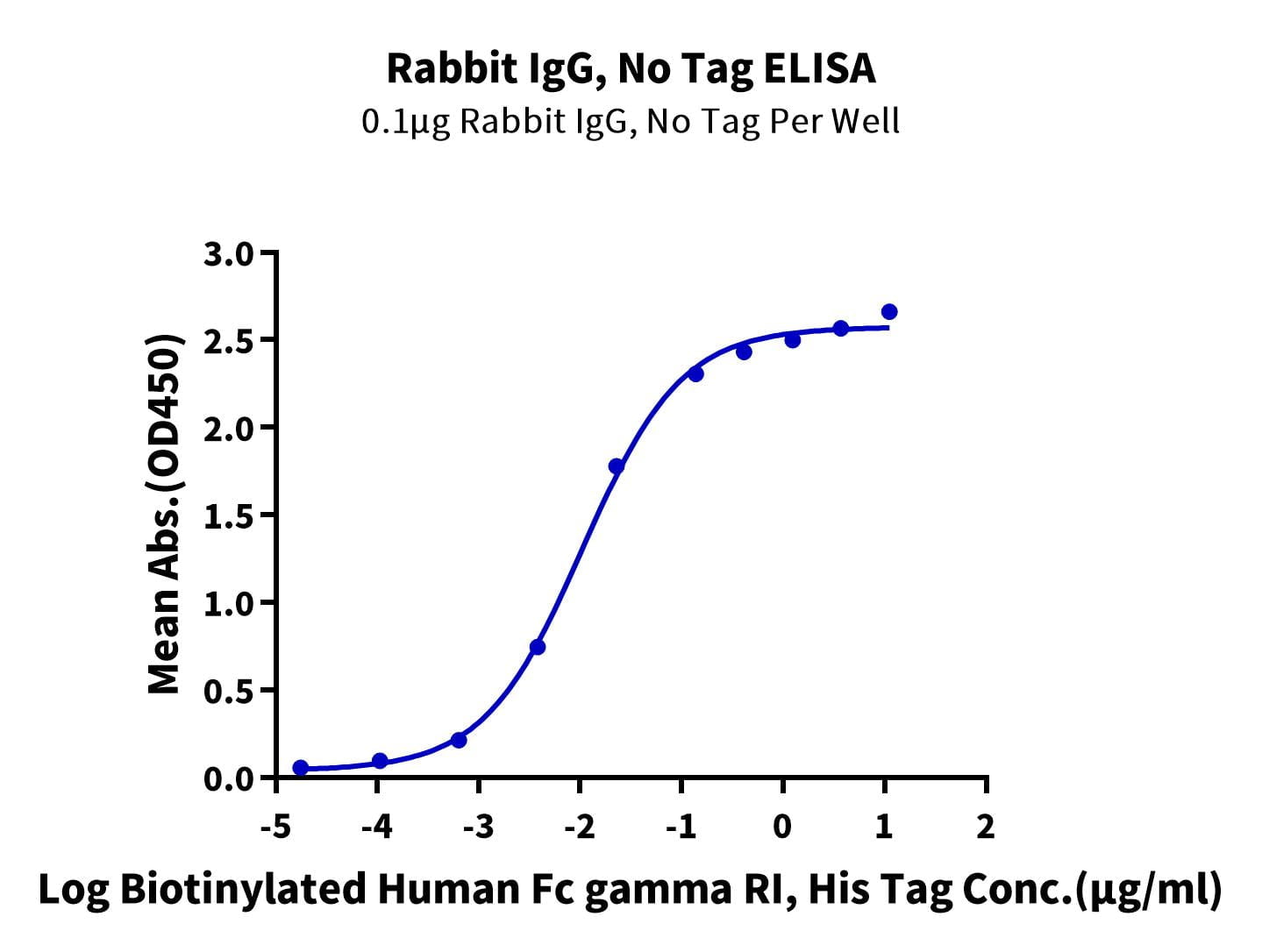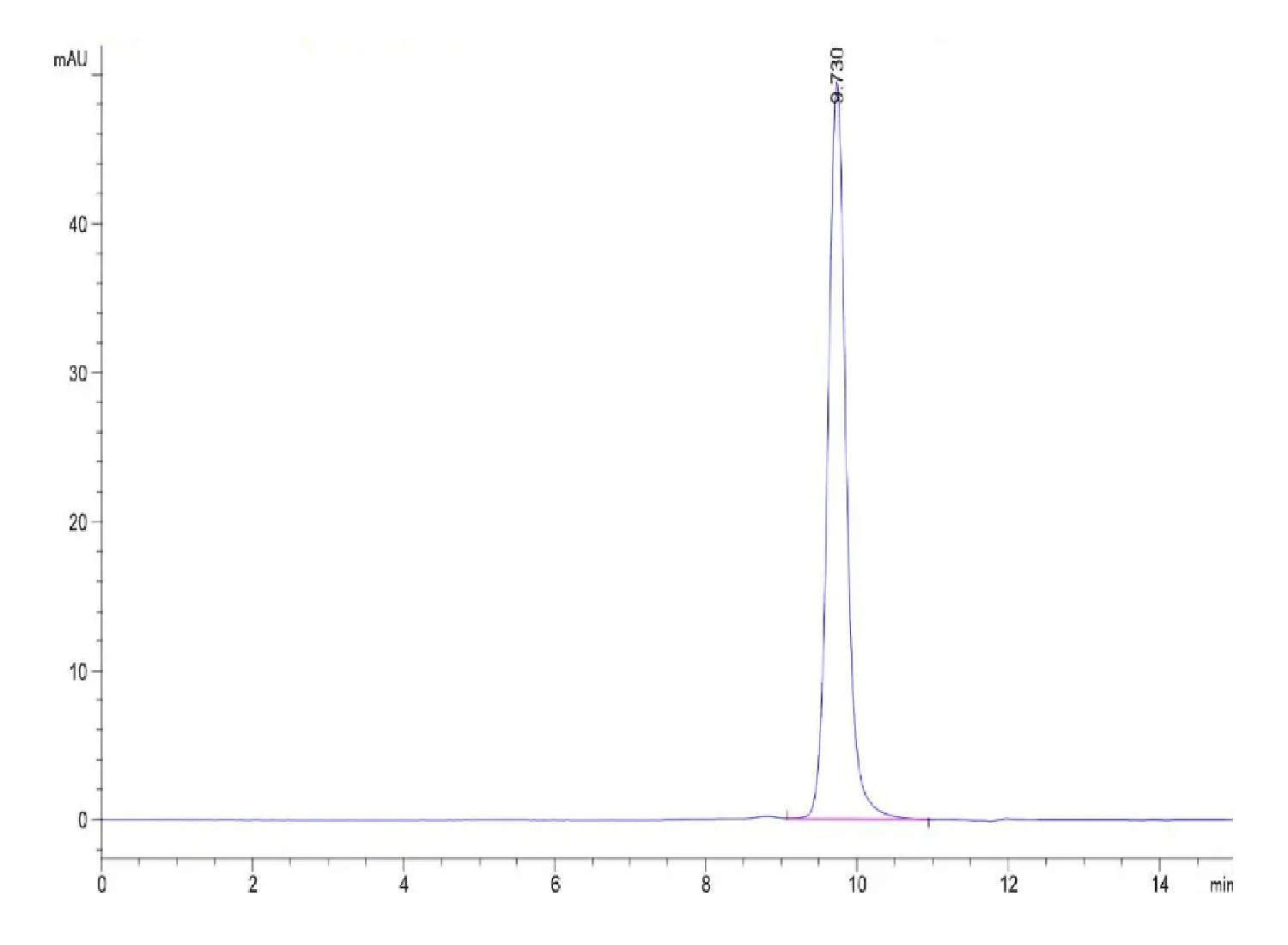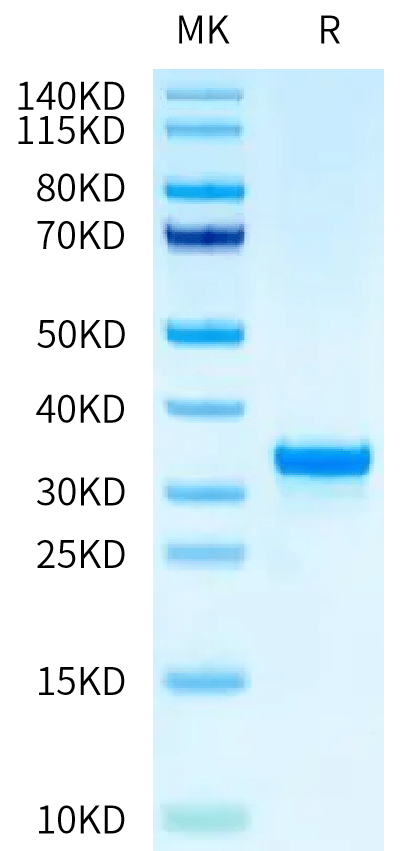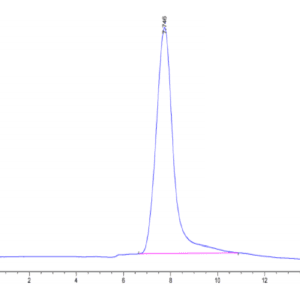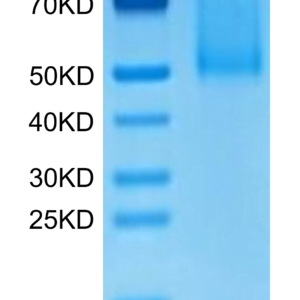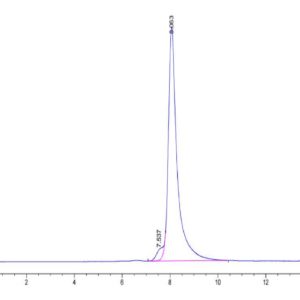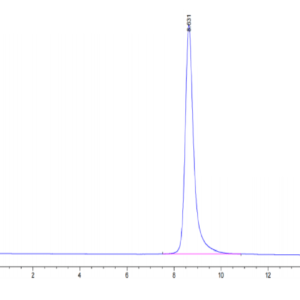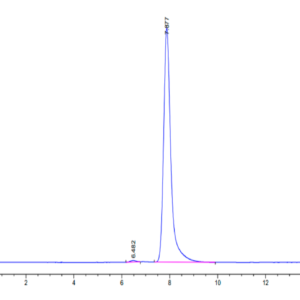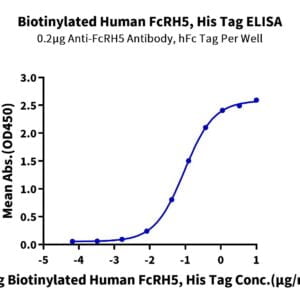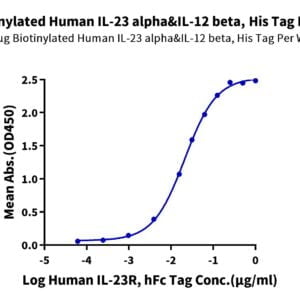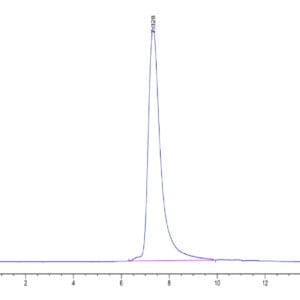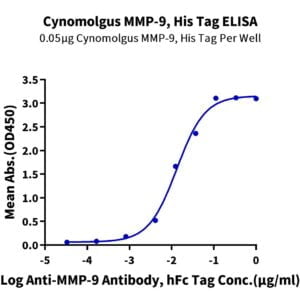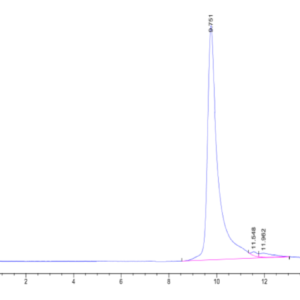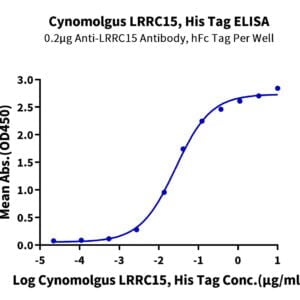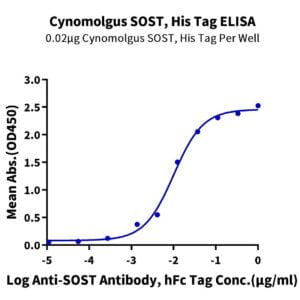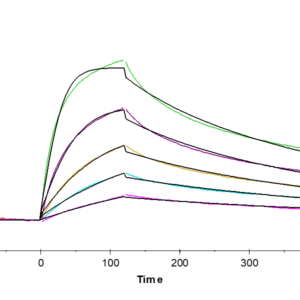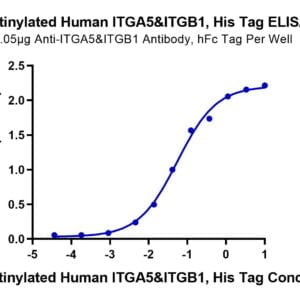| Weight | 1 lbs |
|---|---|
| Dimensions | 9 × 5 × 2 in |
| accession | P01870 |
| express system | HEK293 |
| product tag | No Tag |
| purity | > 95% as determined by Tris-Bis PAGE;> 95% as determined by HPLC |
| background | Immunoglobulin G (IgG) glycosylation can modulate antibody effector functions. Depending on the precise composition of the sugar moiety attached to individual IgG glycovariants either pro- or anti-inflammatory effector pathways can be initiated via differential binding to type I or type II Fc-receptors. Rabbits make high-affinity IgG antibodies, all of which bind with high affinity to Protein A from Staphylococcus aureus and Protein G from Group G Streptococcus. |
| molecular weight | The protein has a predicted MW of 25.13 kDa. Due to glycosylation, the protein migrates to 30-38 kDa based on Tris-Bis PAGE result. |
| available size | 100 µg, 500 µg |
| endotoxin | Less than 1EU per μg by the LAL method. |
Rabbit IgG Protein 2296
$90.00 – $300.00
Summary
- Expression: HEK293
- Functional: Yes (ELISA)
- Amino Acid Range: Ser101-Lys323(T185A, N284S)
Rabbit IgG Protein 2296
| protein |
|---|
| Size and concentration 100, 500µg and liquid |
| Form Liquid |
| Storage Instructions Valid for 12 months from date of receipt when stored at -80°C. Recommend to aliquot the protein into smaller quantities for optimal storage. Please minimize freeze-thaw cycles. |
| Storage buffer Shipped with dry ice. |
| Purity > 95% as determined by Tris-Bis PAGE |
| target relevance |
|---|
| Immunoglobulin G (IgG) glycosylation can modulate antibody effector functions. Depending on the precise composition of the sugar moiety attached to individual IgG glycovariants either pro- or anti-inflammatory effector pathways can be initiated via differential binding to type I or type II Fc-receptors. Rabbits make high-affinity IgG antibodies, all of which bind with high affinity to Protein A from Staphylococcus aureus and Protein G from Group G Streptococcus. |
| Protein names Ig gamma chain C region |
| Mass 9986Da |
| Target Relevance information above includes information from UniProt accession: P01870 |
| The UniProt Consortium |
Data
Publications
Publications
| pmid | title | authors | citation |
|---|---|---|---|
| We haven't added any publications to our database yet. | |||
Protocols
| relevant to this product |
|---|
Documents
| # | ||
|---|---|---|
| Please enter your product and batch number here to retrieve product datasheet, SDS, and QC information. | ||
